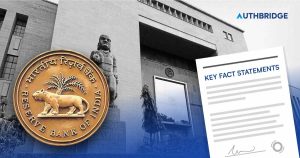Three out of ten business failures are the result of thefts at workplace carried out by employees while at least 30% of resumes are falsified. A recent Times of India data analysis based on the report by RBI shows that in public sector banks, one bank personnel is caught for fraud per four hours in India. More than five thousand bank officials have been charged with fraud in the two-year period from 2015 to 2017.
In a majority of cases, employees collaborated with external entities to carry out the crime. More than Rs.66,066 crores reportedly have been lost due to frauds in banks. In another recent survey pertaining to frauds in the corporate sector, 80% of participants said junior employees, mid-level management and freelancers were involved in most frauds.
Civil Litigation database checks the need of the hour
These facts are behind the increasing applications of litigation database checks for day-to-day business. With the trend favouring short-term or temporary hires, freelancers and shared economy models, there is a need for exhaustive background and litigation checks for credit and reputational risk of an individual employee, vendor, and partner or contract worker.
Litigation database checks provided by the District Civil Courts & Tribunals, Supreme Court, High Courts and Magistrate Courts reveal information on the criminal history of the candidate.
Civil litigation check reveals information related to credit score, bankruptcy, real estate, bank defaulters, media searches, tribunals data and so on. Obtaining relevant information regarding the potential candidate’s involvement in either criminal or civil litigations is critical to making the right hiring decision.
Use of technology speeding up litigation database checks
Traditionally, while information had to be manually processed, conducting litigation database checks was a nightmare for employers. Given the pressures of hiring quickly and making the best decisions, the HR team more often than not resorted to shortcuts in conducting litigation checks. The long processing time of obtaining records from various agencies is also an impeding factor as far as operational efficiency is concerned.
The digitization of court records and public access to such records are facilitating informed decision making by running through these records to understand the individual’s character. Both national and international databases that are accessible on the public domain are digitized, making litigation checks faster, efficient and accurate. Many countries make available the details of arrests or convictions on international databases that can be accessed for litigation checks. In India, the CBI, NIA and the National Crime Records Bureau also put up digital lists of most wanted criminals. SEBI, RBI, BSE, MCA, NSE, and the Registrar of companies also maintain digital records that can be used for litigation checks. Furthermore, INTERPOL also publishes the list of wanted criminals at International level.
APIs and TrustOnDemand™
Professional background verification companies leverage digital databases using cutting-edge technology solutions, including API integration and ‘TrustOnDemand™’ to conduct comprehensive litigation checks. The use of online repositories such as the digital records maintained by several national and international courts, police records, SEBI and RBI records delivers instant verification results. Technology streamlines the process of litigation database checks while providing the most cost-effective solutions for organisations in the gig economy.
Litigation database checks beyond employment screening
While litigation database checks are increasingly being used in India to conduct background screening of employees and partners, their use can extend to other areas of life as well just as it has in China. Being a totalitarian society, China is proposing using a ‘score’ that is based on inputs from all digital databases including police records, court information, tax, banking and employment history. Companies and individuals will be given a score based on these inputs which will determine their credibility, professionalism or loan worthiness. Eventually, with the expansion of gig and shared economy models of business, litigation database checks may well dictate every area of life.





